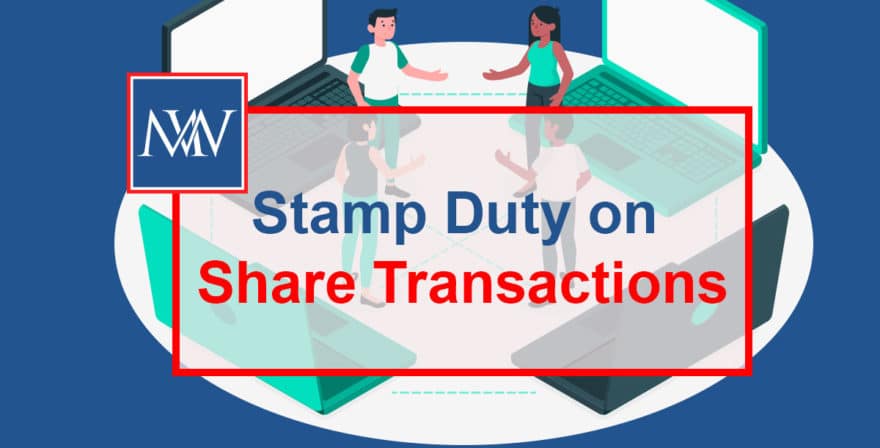
Stamp duty on share transactions
Stamp duty is the oldest of our surviving taxes – dating as far back as 1694 – although the scope of the tax has considerably reduced over time and is now entirely limited to paper transactions in shares.
Stamp Duty is generally payable on non-electronic share deals on transactions valued over £1,000. Stamp Duty Reserve Tax (SDRT) is charged on share purchases made electronically (e.g. an online share dealing account).
Until recently, the payment of stamp duty was evidenced as it had been for over 300 years, namely by impressing a stamp on a paper document. This made it extremely simple but cumbersome, and began to cause unacceptable delays in the modern commercial world. In response to a review by the Office for Tax Simplification (OTS), regulations made in March 2019 finally removed the necessity for an impressed stamp. With effect from 22 April 2019, the payment of duty is denoted by stamps produced by means of a die – and the definition of ‘die’ has been extended to include any machine used under the direction of HMRC for denoting duty.
Stamp duty is a tax on ‘instruments’ specified in the legislation, including:
- stock transfers;
- other documents transferring a beneficial interest in stock or marketable securities;
- Companies House returns for purchase of own shares;
- creation of bearer instruments;
- sale of a partnership interest;
- certain court orders that act as a document of transfer.
Standard rate of stamp duty
Stamp duty is referred to as an ad valorem tax – meaning it is payable in proportion to the estimated value of goods or transaction concerned.
A transfer on sale of stocks or marketable securities is subject to stamp duty at the standard rate of 0.5% and is calculated by reference to the amount or value of the consideration paid.
Where the amount of value of the consideration for the sale is £1,000 or under, no 0.5% stamp duty charge will apply if the instrument contains a ‘certificate of value’.
A certificate of value is a statement that the transaction effected by the instrument does not form part of a larger transaction or series of transactions in respect of which the amount or value, or aggregate amount or value, of the consideration exceeds that amount.
An instrument representing a share sale for consideration of £1,000 or less which does not contain a certificate of value is subject to stamp duty at 0.5%.
Stock transfer forms
Stamp duty is unique among UK taxes in that the legislation does not specify a person who is liable to pay the duty. In practice, it is usually the person who needs the instrument to prove title (e.g. to register ownership of shares) or the person’s agent (such as a solicitor or stockbroker) who presents it for stamping and pays the duty.
A stock transfer form can be obtained from a broker, a lawyer or an accountant who deals in shares, or it can be downloaded from the internet. In normal circumstances the form would be posted to HMRC for review, but temporary measures have been introduced due to the coronavirus pandemic which mean that forms should currently be sent in electronic format.
Payment
The deadline for paying Stamp Duty and getting stock transfer documents to the Stamp Office is no later than 30 days after they have been dated and signed. Interest and penalty charges may be imposed for late stamping and/or payment.
Different rules apply to documents relating to UK land.
If there is an overpayment of stamp duty on a transaction a refund may be claimed. Refunds must be claimed within two years of the date of the stamped document. If the document is undated, a refund can be claimed within two years of first execution.
For more information on stamp duty on share transactions, Book a Free Consultation
Need Accountancy Support?
For information on bespoke training, or if you have any other questions for Makesworth Accountant, please fill in your details below




















 148
148